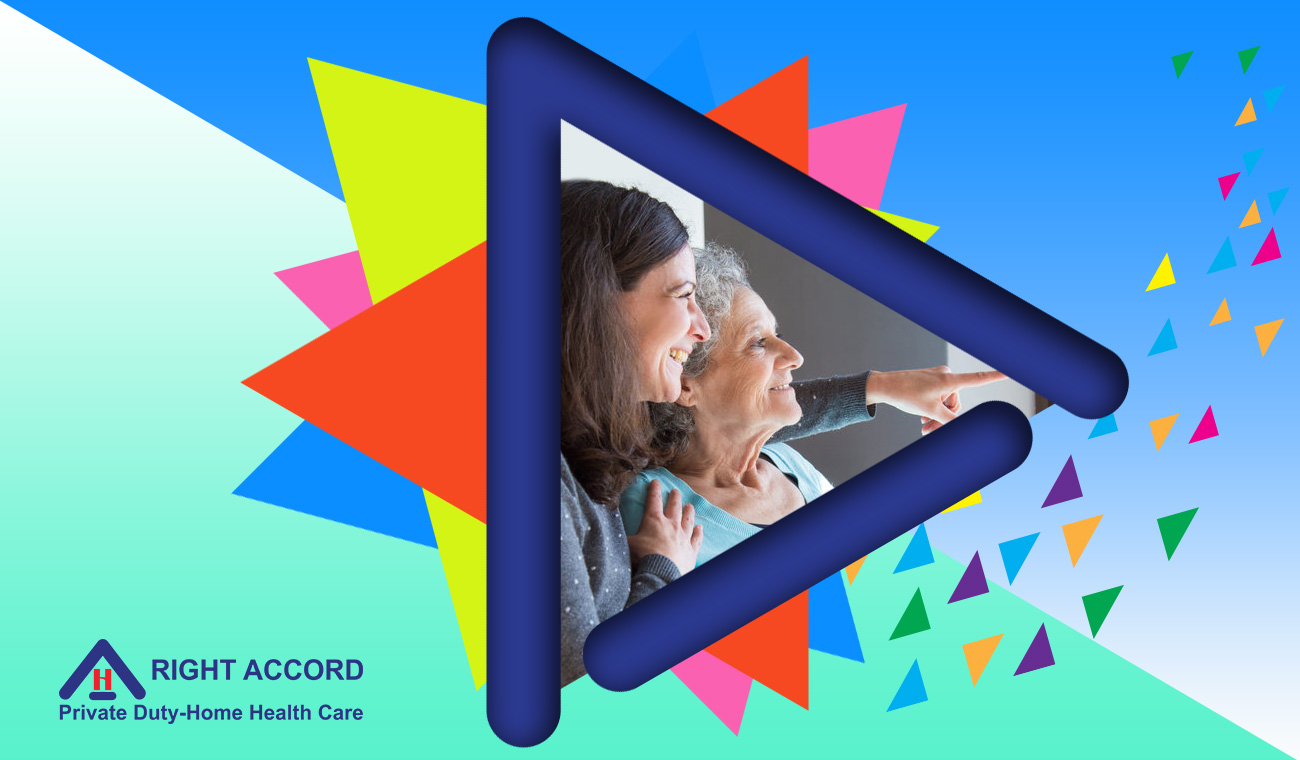· 8 min read
6 Essential Tips for Seniors to Maintain A Healthy Eyesight
Vision changes are part of the aging process that's why it's crucial for seniors to take proactive steps to optimize their vision and keep healthy eyes.
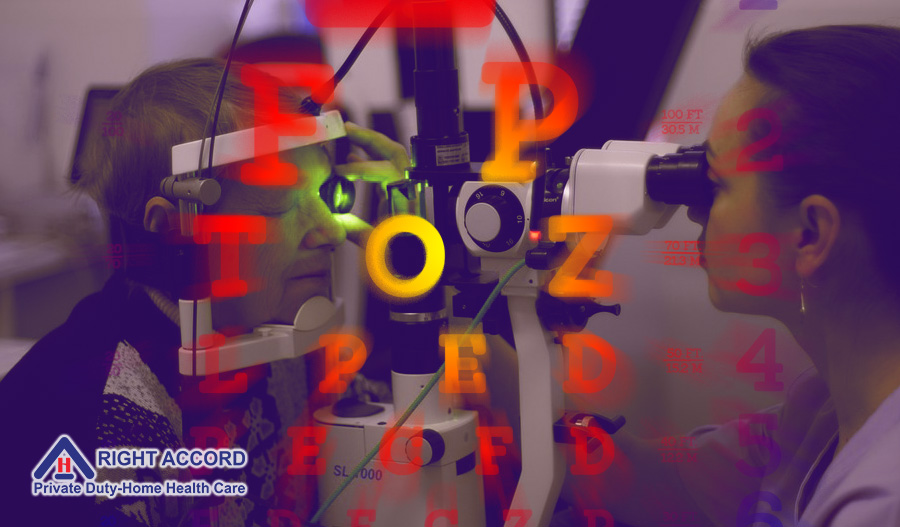
By: Rosemarie Tamunday Casanova — RN, BSN, MHA
As we age, taking care of our overall health becomes increasingly important. And when it comes to maintaining a high quality of life, one aspect that should not be overlooked is our eyesight.
Our eyes are our windows to the world, allowing us to experience the beauty and wonder around us. However, vision changes are a natural part of the aging process, and many seniors may find themselves facing challenges when it comes to their eyesight. That’s why it’s crucial for seniors to take proactive steps to optimize their vision and maintain healthy eyes.
In this article, we will explore essential tips and strategies that can help seniors keep their eyesight in top shape, ensuring that they can continue to enjoy a vibrant and visually rich life. From adopting a healthy lifestyle to regular eye exams and incorporating eye-friendly habits, we will cover everything seniors need to know to protect and enhance their precious gift of sight. So let’s dive in and discover the secrets to optimizing your vision for a brighter future ahead!
The Importance of Maintaining Healthy Eyesight as a Senior
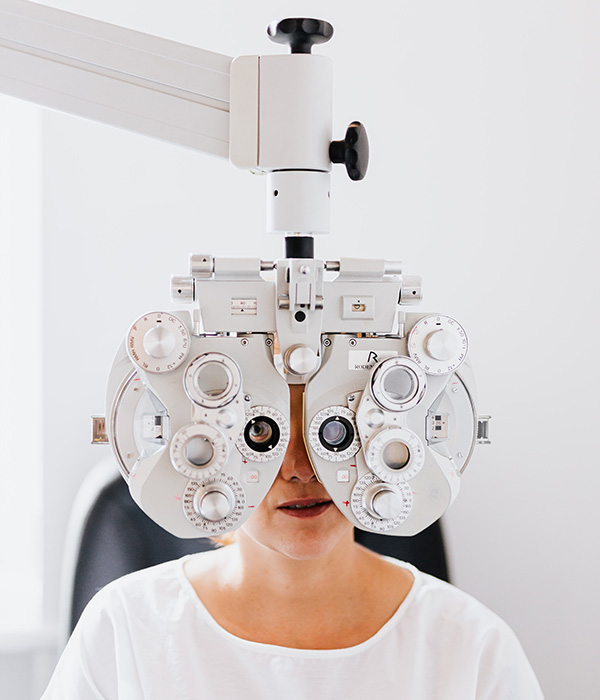
Photo by Karolina Grabowska on Pexels
As seniors, we rely on our eyesight for a variety of daily activities, from reading and driving to enjoying hobbies and spending time with loved ones. However, age-related vision problems can significantly impact our ability to perform these tasks with ease.
That’s why maintaining healthy eyesight should be a top priority for seniors. By taking proactive steps, we can minimize the risk of vision loss and ensure that we can continue to lead an active and independent lifestyle.
Common Age-Related Vision Problems
As we age, our eyes undergo various changes that can affect our vision. Some of the most common age-related vision problems include:
- Presbyopia: This condition occurs when the lens of the eye becomes less flexible, making it difficult to focus on close objects. It usually becomes noticeable around the age of 40 and progressively worsens with time.
- Cataracts: Cataracts are cloudy areas that develop in the lens of the eye, leading to blurred vision. They are a common condition among seniors and can significantly impact vision if left untreated.
- Age-related macular degeneration (AMD): AMD is a progressive condition that affects the central part of the retina, called the macula. It can cause blurred or distorted vision, making it challenging to perform tasks that require sharp central vision, such as reading or recognizing faces.
- Glaucoma: Glaucoma is a group of eye conditions that damage the optic nerve, leading to vision loss. It is often associated with increased pressure within the eye and can gradually worsen over time if left untreated.
By understanding these common age-related vision problems, seniors can be better prepared to recognize the signs and symptoms and seek appropriate treatment or preventive measures.
Tips for Maintaining Healthy Eyesight
While age-related vision changes are inevitable, there are several proactive steps seniors can take to maintain healthy eyesight and reduce the risk of vision problems. Let’s explore some essential tips:
Eating a Balanced Diet for Good Eye Health
A healthy diet plays a crucial role in maintaining good eye health. Certain nutrients, such as vitamins C and E, zinc, lutein, zeaxanthin, and omega-3 fatty acids, have been linked to a lower risk of age-related eye diseases. Here are some eye-friendly foods that seniors should consider incorporating into their diet:

Photo by Abet Llacer on Unsplash
- Leafy Greens: Spinach, kale, and collard greens are rich in lutein and zeaxanthin, which are antioxidants that help protect the eyes from harmful free radicals.
- Colorful Fruits and Vegetables: Carrots, sweet potatoes, bell peppers, and berries are packed with vitamins and antioxidants that promote eye health.
- Fish: Fatty fish like salmon, tuna, and mackerel are excellent sources of omega-3 fatty acids, which can help reduce the risk of AMD.
- Eggs: Eggs are rich in lutein, zeaxanthin, and zinc, all of which are beneficial for maintaining healthy eyesight.
By incorporating these foods into their diet, seniors can provide their eyes with the necessary nutrients to stay healthy and vibrant.
The Role of Regular Exercise in Maintaining Healthy Eyesight
Regular exercise is not only good for cardiovascular health but also plays a role in maintaining healthy eyesight. Engaging in moderate-intensity exercises, such as brisk walking, swimming, or cycling, can help improve circulation throughout the body, including the eyes. Increased blood flow to the eyes delivers essential nutrients and oxygen, promoting optimal eye health.
Additionally, regular exercise can help manage certain systemic conditions, such as diabetes and high blood pressure, which are known risk factors for eye diseases like diabetic retinopathy and glaucoma. By keeping these conditions under control, seniors can reduce their risk of developing vision problems.
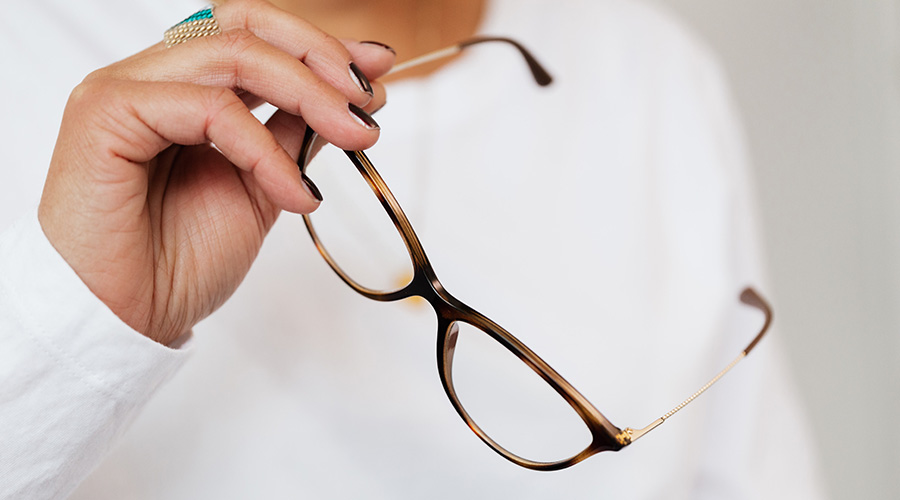
Photo by Karolina Grabowska on Pexels
Protecting Your Eyes from Harmful UV Rays and Blue Light
Exposure to ultraviolet (UV) rays from the sun and blue light from digital devices can contribute to eye damage. Seniors should take steps to protect their eyes from these harmful rays:
- Wear Sunglasses: When spending time outdoors, seniors should wear sunglasses that block 100% of both UVA and UVB rays. Look for sunglasses labeled with UV protection.
- Use Blue Light Filters: Blue light emitted by digital devices, such as smartphones, tablets, and computers, can cause eye strain and disrupt sleep patterns. Seniors can reduce the impact of blue light by using screen filters or wearing blue light-blocking glasses when using these devices.
By protecting their eyes from UV rays and blue light, seniors can minimize the risk of eye strain, dryness, and other potential long-term effects.
Regular Eye Exams and the Importance of Early Detection
Regular eye exams are essential for seniors to monitor their eye health and detect any potential issues early on. Many age-related eye conditions, such as cataracts, glaucoma, and AMD, can develop gradually and may not present noticeable symptoms in the early stages. Regular eye exams can help identify these conditions before they progress, allowing for timely treatment and management.
Seniors should schedule comprehensive eye exams at least once a year or as recommended by their eye care professional. During these exams, the eye doctor will assess vision, check for signs of eye diseases, and prescribe corrective measures if necessary. By prioritizing regular eye exams, seniors can take a proactive approach to maintain healthy eyesight and catch any potential problems early.
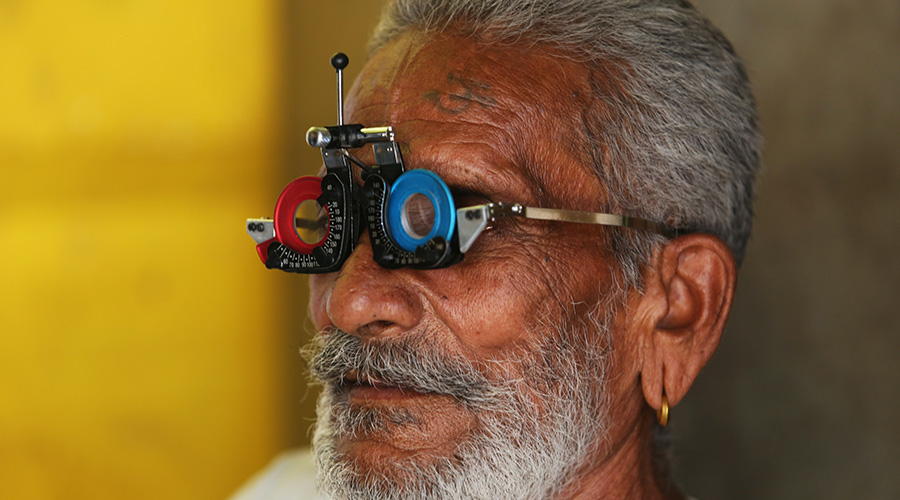
Photo by Mike Sangma on Pexels
Tips for Preventing Eye Strain from Digital Devices
In today’s digital age, spending extended periods staring at screens has become a common occurrence. However, prolonged screen time can lead to eye strain, dryness, and discomfort. Seniors can follow these tips to prevent eye strain from digital devices:
- Follow the 20-20-20 rule: Every 20 minutes, take a 20-second break and look at something 20 feet away. This helps reduce eye fatigue and refocuses the eyes.
- Adjust display settings: Increase text size, adjust brightness, and reduce blue light emission on digital devices to make them more eye-friendly.
- Take regular breaks: Make sure to take frequent breaks from screen time to allow the eyes to rest and reduce strain.
By implementing these simple habits, seniors can minimize the impact of digital screens on their eyes and maintain optimal eye health.
The Benefits of Wearing the Right Eyewear
Wearing the right eyewear is crucial for seniors to optimize their vision and protect their eyes. Whether it’s prescription glasses, contact lenses, or sunglasses, here are some considerations when it comes to eyewear:
- Prescription Glasses: Seniors who require vision correction should ensure they have an up-to-date prescription and wear glasses that provide clear and comfortable vision. Regularly visiting an optometrist or ophthalmologist will help ensure the prescription is accurate.
- Contact Lenses: If seniors prefer contact lenses, they should follow proper hygiene practices and replace them as recommended by their eye care professional to minimize the risk of eye infections.
- Sunglasses: As mentioned earlier, wearing sunglasses with proper UV protection is essential for reducing the risk of UV-related eye damage. Seniors should choose sunglasses that fit well and provide adequate coverage.
By wearing the right eyewear, seniors can optimize their vision, protect their eyes from potential harm, and improve their overall visual experience.
Conclusion: Taking Proactive Steps for Healthy Eyesight as a Senior
Maintaining healthy eyesight is vital for seniors to continue enjoying an active and vibrant lifestyle. By adopting a healthy diet, engaging in regular exercise, protecting their eyes from harmful rays, scheduling regular eye exams, preventing eye strain from digital devices, and wearing the right eyewear, seniors can optimize their vision and reduce the risk of age-related vision problems.
It’s never too late to start taking proactive steps towards healthy eyesight, and by following these essential tips, seniors can ensure that their precious gift of sight remains vibrant and clear for years to come. So let’s prioritize our eye health and embrace a future filled with visual richness and joy!

